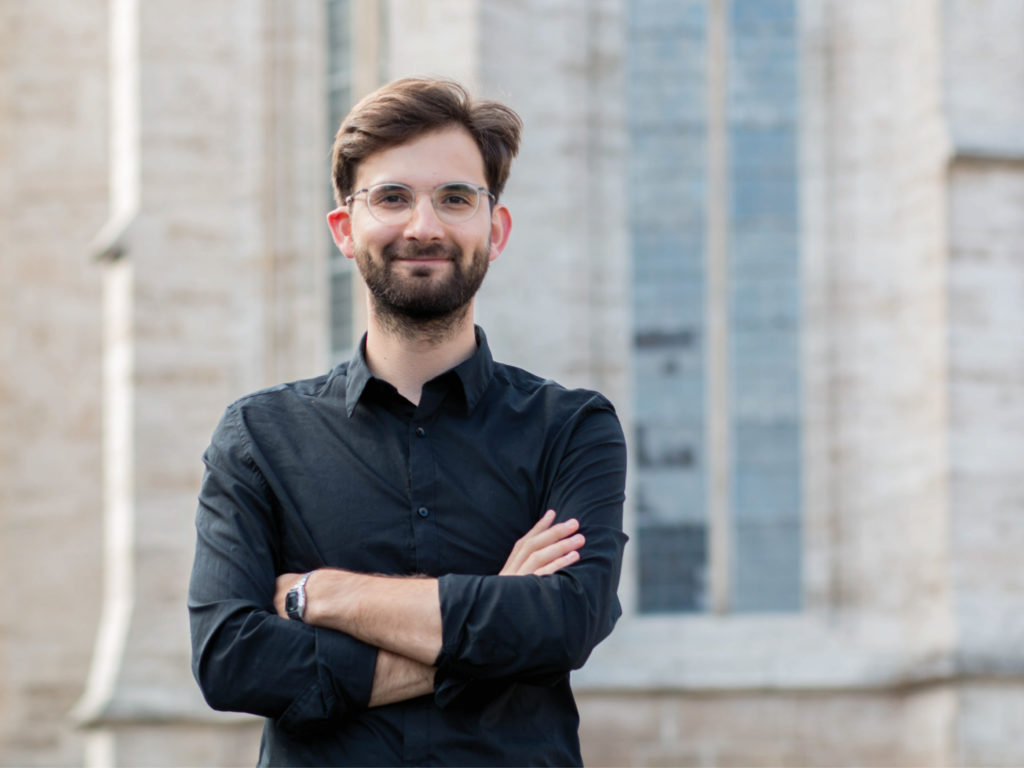Jewish – Russian – Ukrainian – German
After World War II, Judaism was practiced in secret in our family at home in our apartment. Outwardly, we were all non-observant Socialists. My mother barely learned anything of our Jewish traditions as a young woman. One thing that was constant was that Yiddish was spoken at home. It wasn’t until the USSR collapsed that our family started to be more observant. My great-uncle was the founder and first head of the Jewish congregation in Crimea. His son later became the rabbi there and has been a rabbi in Bratislava since the Crimea crisis in 2014. Many relatives left Crimea in the 1990s, moving to Israel and the United States.
When we emigrated to Germany as a family, we hoped there would be a vibrant community here. That hope didn’t last long. The way immigrants were distributed around the country meant that the first Jewish families were supposed to move to Mühlhausen to support a congregation there. In the end, though, there were only four families, and the program under which specific numbers of refugees were admitted to Germany was closed after that. So we had a consecrated synagogue, but no community of worshipers. As a result, I had a secular upbringing. Our Jewish life doesn’t consist of going to synagogue on Friday. The holidays are a time to pause and communicate with distant family by video chat, Viber or telephone. The Jewish holidays are family highlights for me. We no longer speak Yiddish. We speak Russian at home. In general, Russian culture overshadows cultural traditions through the many years of the family’s socialization. My mother, together with some other politically active women, started an association for Russian-speaking migrants in Mühlhausen. There, resettlers and contingent refugees helped each other and celebrated Russian festivals together. Religion was irrelevant, and still is.
My parents thought moving to Germany would be the end of their anti-Semitic experiences. In fact, I have personally experienced resurgent anti-Semitism for years. As a politically active person, I get regular anti-Semitic hate e-mails. When I ran for the Thuringian state parliament, posters of me were graffitied with the Star of David. Just recently, I walked by anti-Semitic graffiti in Mühlhausen. All that does make me wonder at times whether moving to Germany was the right decision.

Oleg Shevchenko was born in Simferopol (Ukraine) in 1995. He studied economics and business at the University of Jena. He has been the state head of the SPD’s Young Socialists in Thuringia since 2017. Today, he represents the SPD in the district assembly for the Unstrut-Hainich District and the city council of Mühlhausen, where he grew up.